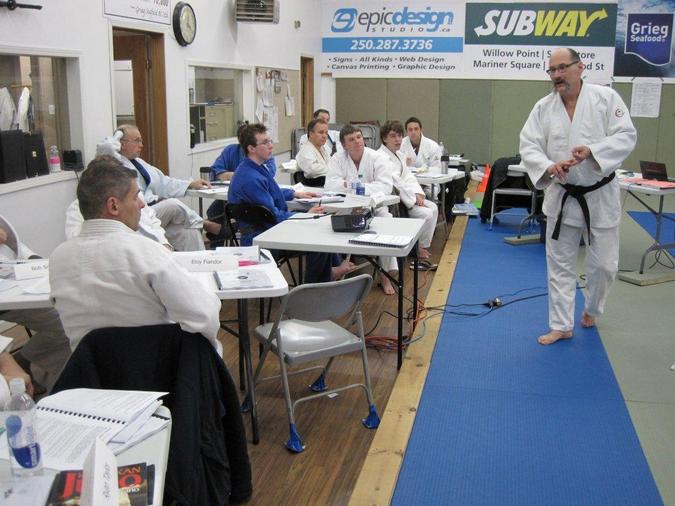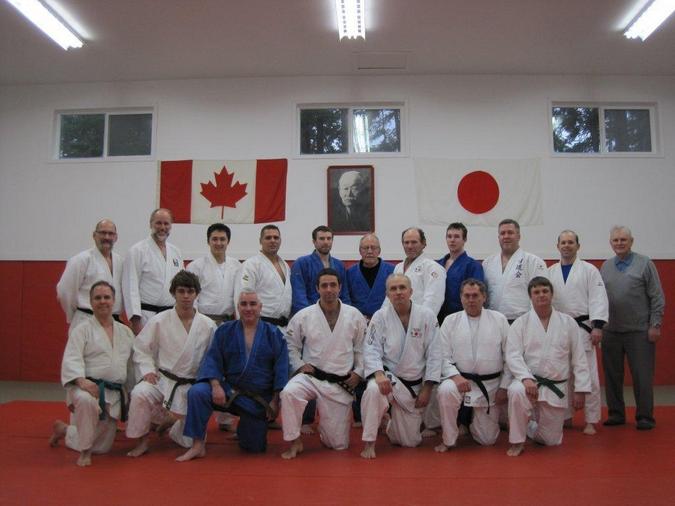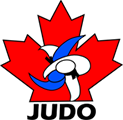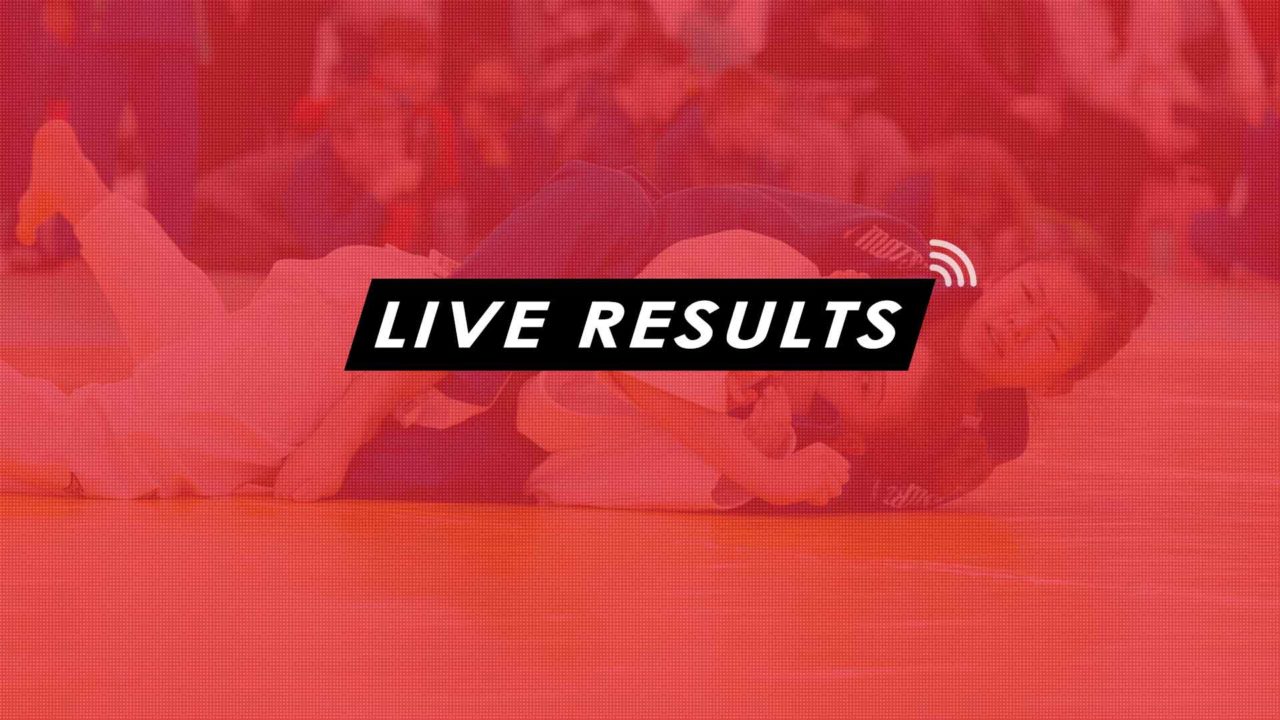This past weekend I attended in a Judo BC training seminar in Campbell River. The NCCP Dojo Assistant course prepares individuals who are on a teaching track to take greater responsibility in assisting delivery of instruction. The seminar, led by officials from Judo BC, was overseen by Sensei John Huntley (7th Dan) of Aberdeen Judo in Kamloops. In attendance were numerous club Senseis and a Vice-President of Judo Canada. It was a sea of black belts. I was the lowest ranked guy in the room.
Intense? Oh, boy …
I woke at 4 AM and drove for three hours through the wind-swept pre-dawn dark, fueled by a combination of coffee and David Bowie, to arrive at Campbell River Judo Club by 9 AM. We plunged right in, starting with several hours of classroom work. First there was a course overview followed by a morning of ethical instruction. The facilitators stepped us through a decision-making process that guided our consideration of various hypothetical scenarios. It forced us to examine the way we approach decisions that affect the welfare of our athletes. After a break we hit the mats, where Sensei Huntley proceeded to run us ragged.
Because judo is a traditional sport we sometimes tend to do things simply because “that’s the way we’ve always done it.” From the start Sensei Huntley made it clear that more was expected of us. The ethics stuff pulled us out of our comfort zone, and the forty-five minute warm-up he conducted continued that trend. Sensei modeled alternative ways for us to prepare our judoka for class. This wasn’t your standard “fifty push-up, fifty sit-up, fifty leg-raises” model – we worked kinesthetic systems using games, equipment (such as balls and bean bags, lengths of rubber tubing), adaptive sport, etc. More than a few of us were breathing heavily by the end, but Sensei John hadn’t even cracked a sweat. (He’s seventy-two.)
For the next several hours we alternated between mat time and classroom instruction. It was challenging, even for those of us with an education background, because we had to simultaneously hold two opposing principles in mind: the need for innovation and the importance of tradition. Again and again we were told: “You are only limited by your own imagination.” But just when we were getting used to the idea of Twenty-First Century “sci-fi” judo, Sensei Huntley would point to a wall and bark: “What’s that called?” And we were expected to respond promptly with the traditional Japanese term (for the record: kamiza, shimoza, joseki and shimoseki). Then it was back to the books for CAC-mandated instruction on safety standards, teaching methodology, energy systems, lesson planning …
The most fun came with our presentations. I got to see black belts and brown belts from all over the Island demonstrate how they teach things. I could go on for hours about how Sensei Fiandor from Nanaimo Judo uses basic movements and physical proximity to teach both newaza and taichi-waza techniques. Or how Sensei Darcy of Campbell River magically combines theory and practice to teach you nine different things before you’re even aware he’s doing it. Or how Sensei Jeremy’s five-minute presentation on gripping and footwork challenged my entire concept of shiai.
These are wildly talented people who transformed my understanding in leaps and bounds. I must have gained a month of growth in the first day’s nine hour session.
The trend continued on Sunday with greater focus on instruction and mat time. We were supposed to do partner presentations but my partner had to bail for health reasons, which left me on my own. I did two presentations, one on bowing and etiquette and another on fundamentals of throwing. Both were generally well received, and I got some useful feedback on how to improve. The challenge for me will be going from a conceptual teaching model to a conceptual/kinesthetic model. I have a sense of where I’m going, and even some sense of how to get there. But now I’ll need some practical experience coaching. Fortunately, Sensei Mike has already begun making that happen for me.
All in all it was an amazing weekend. The best part for me came when a chance phone call with my friend Leah (at whose place I was staying) ended with Sensei Huntley’s coming over for dinner. Our conversation with him could be a whole separate entry. But he filled us in on his regular visits to Japan, where he still competes (!) and pursues his own professional development with high-ranking members of the Kodokan. Judo for him, as for all of us, is a life-long committment and path toward realizing our full potential. The Dojo Assistant Course provides a vehicle for us to share that with the next generation. I am very grateful to have had the opportunity to participate. Domo-arigato
Submitted by Jamie Mason, Mill Bay Shidokai Judo Club



 SHOP
SHOP












